Living in a time (or place) where people can wear whatever they want is truly freeing. Imagine not being able to wear pants and having to opt for skirts and dresses every day. It would probably feel restrictive and uncomfortable, hindering our productivity and self-confidence. While some individuals have to stick to certain dress codes for various reasons, part of those who don’t still believe that some clothing items pertain only to men or women, regardless of changing social norms.
Just like this woman’s mom, who didn’t like the fact that she was going to wear a suit to a prom. She even said that she felt sorry for not raising her daughter right because of her clothing choices, for which she came up with the perfect comeback.
Nowadays, it’s common for people to dress however they like
Image credits: Dmitry Ganin / unsplash (not the actual photo)
However, this woman’s mom still believes that women shouldn’t be going to prom wearing suits

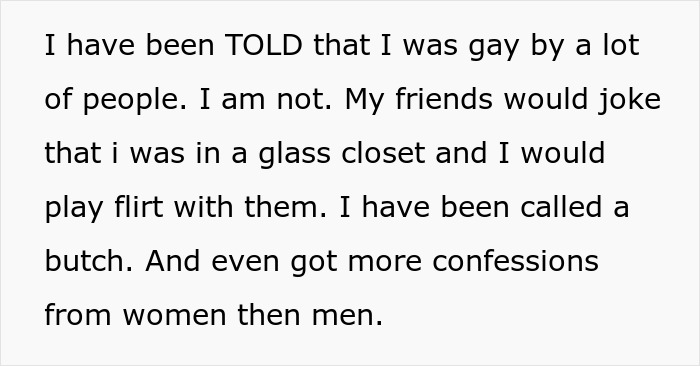

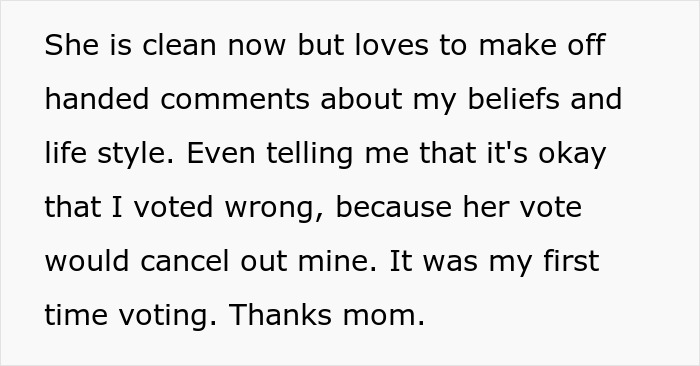

Image credits: Laura Chouette / unsplash (not the actual photo)



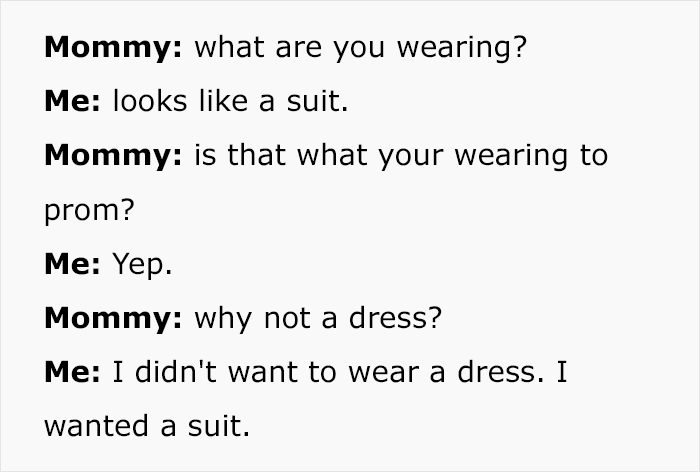

Image credits: Mesut çiçen / unsplash (not the actual photo)
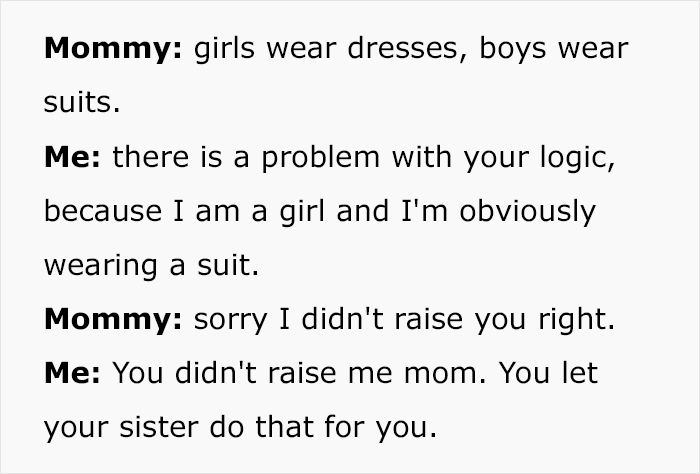


Image credits: IdidnotF**kaCat
Even though it’s common practice for people to dress however they like, some still judge others for their clothing
Most of us are fortunate enough to freely express our identity through the clothes we wear. Many communities, like women and queer people, have advocated long and hard to normalize dressing however they like. For a lot of individuals, it’s a wonderful achievement, as fashion is a form of self-expression, creativity, and individuality that allows them to embrace who they are, communicate their emotions and values, and even maintain or form social relationships.
However, this does not mean that people stopped judging the clothes others find joy in wearing. To this day, research shows that individuals make split-second evaluations of a person’s abilities based on how they dress. The first impression others have of us starts forming before we even open our mouths—it’s enough for them to look at our outfits to get a rough idea of our personality.
Many fashion stereotypes have established themselves in our society this way. If someone sees a woman with a pixie cut dressed in baggy clothes, flannel t-shirts, or suits, they might assume she is homosexual. Since the so-called lesbian fashion or lesbian chic has reached the mainstream and more women are sporting this style, many are mistaken for being gay. That is not to say that it’s a particularly serious issue, but it does show how we categorize people just by the way they look.
The same goes for men. If they dress more feminine (we’re talking about satin or silk fabrics, statement accessories, pastel colors, skirts, and heeled shoes), they are considered to be queer or less manly. Another example is a person who is sporting a full black outfit, makeup, and hair and has lots of tattoos. What would you think of them? That they are perhaps unfriendly, introverted, or sad?

Image credits: Thais Varela / unsplash (not the actual photo)
Sometimes it might be more beneficial to put others’ opinions aside and dress in a way that makes us happy
The dilemma here is: should we care what other people think about our clothing to avoid being judged or stereotyped in an undesirable way? While it’s true that we want to belong and voluntarily seek society’s approval (without even noticing), sometimes it might be more beneficial to put others’ opinions aside and dress in a way that makes us happy.
People who don’t like conforming to wearing neutral or “normal” clothing might feel uncomfortable dressing this way, making them feel less confident. What we wear is closely related to our self-esteem, which is also tightly connected to anxiety. This means that if we put on an outfit we are uncomfortable in or don’t feel ourselves in, it can heighten our anxiety and stress levels throughout the day.
Most of us like to avoid unnecessary stress that weighs down our lives, right? Therefore, deciding to dress in a way we enjoy and not caring about others can help us do that. This even has its own name—dopamine dressing. This concept claims that wearing certain colors, textures, and styles can boost our mood.
While sporting our personal style without giving a care can make us feel good, it’s still important to stick to some universal ‘rules’ that ensure that social chaos doesn’t ensue, like, for example, dressing appropriately for professional or formal events and maintaining respect for cultural norms when visiting a foreign or more sensitive environment. This doesn’t mean that you have to completely give up wearing what you like—just try to incorporate these considerations into an outfit you enjoy.
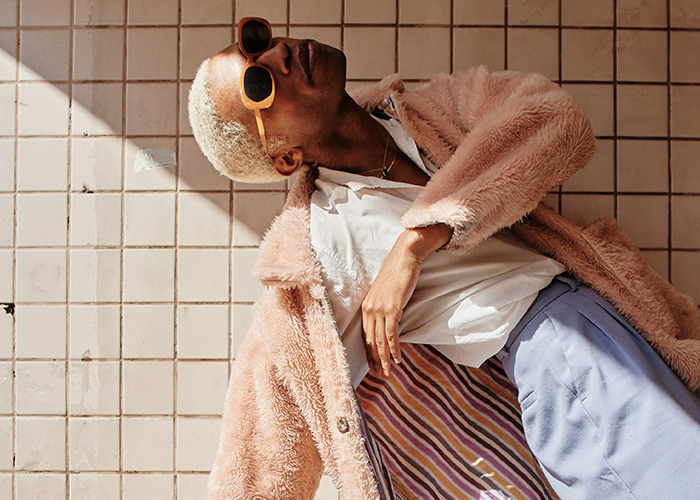
Image credits: Natalia Blauth / unsplash (not the actual photo)
Readers applauded the woman for such a comeback
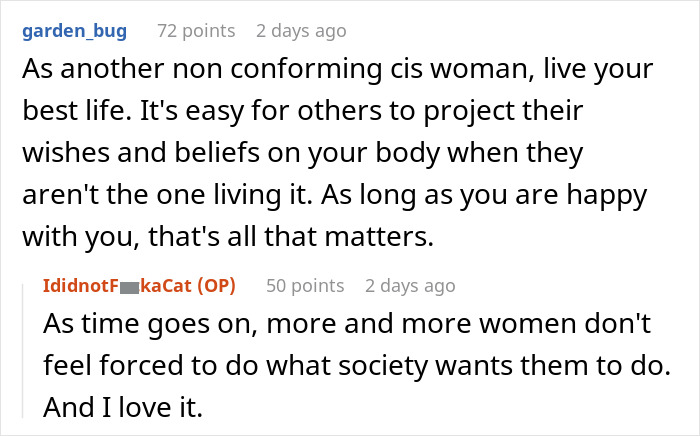






























 English (US) ·
English (US) ·